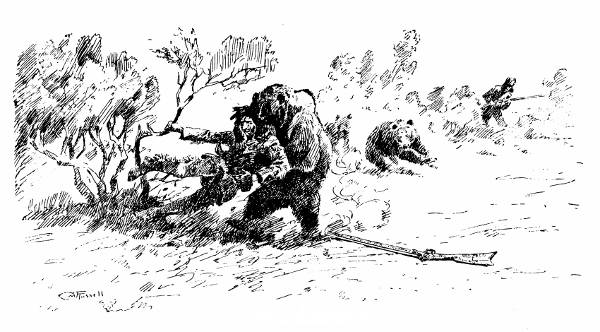
In 1822, frontiersman Hugh Glass joined a corps of 100 “enterprising young men” to ascend the Missouri River on a fur-trapping expedition. At the Grand River he was attacked by a grizzly bear; he and his companions managed to kill it, but Glass was badly mauled. The expedition’s leader offered $40 for volunteers to remain with Glass until he died or could travel. The two men who accepted this charge, John Fitzgerald and Jim Bridger, waited a short interval and then simply took Glass’ belongings and rejoined the expedition, reporting that they’d buried the body.
Glass awoke mutilated, alone, and unprovisioned 200 miles from the nearest settlement. He crawled south for six weeks, foraging on berries, roots, and the carcasses of buffalo, before he reached the Cheyenne River, where he fashioned a raft and floated to Fort Kiowa on the Missouri. Then he set out to seek revenge.
He found Bridger on the Yellowstone near the mouth of the Bighorn River, and decided to spare him because of his youth (Bridger had been only 17 when he’d abandoned Glass). He found Fitzgerald at Fort Atkinson, where he was serving as a private in the Sixth Infantry. George Yount recounts the climax:
Glass found the recreant individual, who had so cruelly deserted him, when he lay helpless & torn so shockingly by the Grizzly Bear–He also there recovered his favorite Rifle–To the man he only addressed himself as he did to the boy– ‘Go false man & answer to your own conscience & to your God;–I have suffered enough in all reason by your perfidy–You was well paid to have remained with me until I should be able to walk–You promised to do so–or to wait my death & decently bury my remains–I heard the bargain–Your shameful perfidy & heartless cruelty–but enough–Again I say, settle the matter with your own conscience & your God.’
He told Fitzgerald’s commanding officer, “I reckon the skunk ain’t worth shooting after all.”
